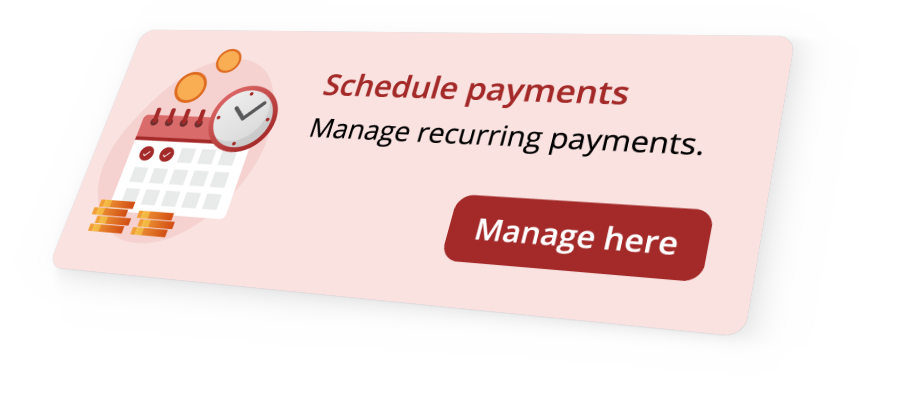Schedule payment - Equity Online
Problem statement
The bank had been providing Standing Order transactional services to customers for many years, but the process required customers to request this service at a physical branch. With the increasing shift of customers towards digital platforms, there was a pressing need for a faster, more convenient, and mobile solution.

To develop this solution, we conducted extensive design research, analysing apps in the same financial field and other fields that involved scheduling aspects, such as social and community apps. We studied human behaviour patterns, the terminology used, and customer concerns to formulate our approach.
Here are the main customer concerns we identified and how we addressed them:
We aimed to provide customers with the ability to schedule transactions and payments without the need to visit a physical branch or contact customer care.
In the initial release, we allowed users to schedule up to five types of transactions and payments. This required introducing a new entry point to facilitate this function.
We integrated predetermined scheduling intervals into the system and included reminder options that matched these intervals to keep users informed and manage errors effectively.
Recognising the diverse nature of scheduled transactions, we provided flexible intervals to accommodate various use cases, from daily tasks like buying airtime to more significant transactions like school fees payments.
We integrated predetermined scheduling intervals into the system and included reminder options that matched these intervals to keep users informed and manage errors effectively.
To handle transactions meant for a single occurrence in the future, we added an option for one-off transactions alongside recurring ones.
In addition to the entry point approach, we provided an option for users to schedule a transaction immediately after completing it, reducing the need to repeat the process.
To ensure transparency and accountability, we incorporated in-app notifications to keep customers updated on the status of each transaction as it was executed.
The biggest challenge we faced was in the attempt to fully customise the feature to fit all interval time. During our research, it came about that some users want a flexible interval such as; every 2 weeks, every ‘n’ days, or the nth day of a week/month/year. We also found that users also want flexibility in the cancelling, skipping, moving up and postponing of the schedule item. These however advised our scope for future releases
The key takeaway from this project was the importance of accommodating multiple user journeys and ensuring a smooth experience for all users, regardless of their specific needs and preferences.